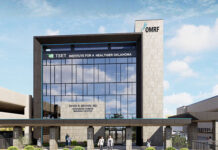September is Global Pulmonary Fibrosis Awareness Month. While most Americans don’t have first hand knowledge of pulmonary fibrosis, the 140,000 Americans who are reported to have it according to the American Lung Association are well aware of the impact it makes on their lives as well as their family.
Pulmonary Fibrosis is one of a family of related diseases called interstitial lung diseases that normally results in lung scarring. As the lung tissue becomes scarred, it interferes with a person’s ability to breathe and deliver oxygen into the blood. One of the most common types of Pulmonary Fibrosis is Idiopathic Pulmonary Fibrosis (IPF – Idiopathic means no known cause). Currently, there is no cure for the disease and no way to reverse lung scarring and damage, so for most, the only hope is a lung transplant.
IPF is commonly misdiagnosed. An accurate diagnosis may be delayed for months or even years because the symptoms of IPF are shared by many other and more common lung diseases, such as COPD, asthma or even cardiac issues. IPF is normally characterized and noticed by a persistent cough and shortness of breath. As the lungs develop more scar tissue, symptoms worsen and patients may become breathless while taking part in everyday activities, such as showering, getting dressed, speaking on the phone, or even eating.
Other common symptoms of IPF include: Fatigue and weakness, Discomfort in the chest, Loss of appetite, Unexplained weight loss, Clubbing’ of fingertips.
Diagnosis is normally confirmed through Pulmonary Function Tests, combined with a High-Resolution Computed Tomography (HRCT) scan of the chest and other pulmonary tests.
To manage symptoms and slow the process, the Food and Drug Administration approved the drugs, nintedanib – brand name Ofev – and pirfenidone – brand name Esbriet – in October 2014. But they are extremely expensive and cost-prohibitive for some. Even with the medications that are designed to slow the process, presently there is no way to reverse lung scarring and damage.
To support this rare disease, the Pulmonary Fibrosis Foundation has created a wealth of information for patients, caregivers and friends to increase their knowledge, and be better prepared to partner with their Pulmonologist and other doctors. Its mission is to serve as the trusted resource for the pulmonary fibrosis community by raising awareness, providing disease education and funding research.
Support is There……..
Participating in a support group may improve your emotional well-being and have a positive impact on your health by offering you an opportunity to connect with others who are facing similar experiences, obtain practical information, and to receive support. Support groups can also be a valuable resource for your caregivers, other family members, and friends. The Oklahoma City area Pulmonary Fibrosis Support Group meets the first Tuesday of every month from 6:30pm – 8:00pm at Integris Baptist Medical Center, 3300 NW Expressway, Conference Rooms J, K, and L, Oklahoma City, OK. There is no charge to attend.
To learn more about IPF, and the available resources for the pulmonary fibrosis community, visit the Pulmonary Fibrosis Foundation website at www.pulmonaryfibrosis.org













